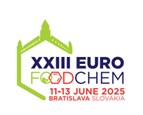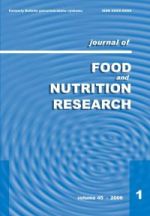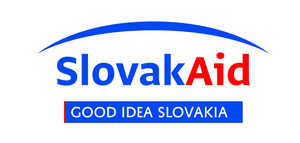Scientific journal
Journal of Food and Nutrition Research
Summary No. 2 / 2023
Rešková, Z. – Véghová, A. – Minarovičová, J. – Andrezál, M. – Burdová, A. – Drahovská, H. – Kaclíková, E.
Molecular typing and discrimination of Listeria monocytogenes associated with production of food of animal origin in Slovakia
Journal of Food and Nutrition Research, 62, 2023, No. 2, s. 140-148
Eva Kaclíková, Food Research Institute, National Agricultural and Food Centre, Priemyselná 4, 82475 Bratislava, Slovakia. E-mail: eva.kaclikova@nppc.sk
Original article
Received 21 February 2023; 1st revised 30 March 2023; accepted 31 March 2023; published online 3 may 2023
Summary: Listeria monocytogenes is an important foodborne pathogen ubiquitous in environment with a potential to colonize food production facilities for long periods. In the present study, diversity of L. monocytogenes isolates from two facilities processing food of animal origin in Slovakia was evaluated using several molecular typing methods. Fifty-five isolates clustered by pulsed-field gel electrophoresis (PFGE) to 15 pulsotypes in our previous studies were subjected to multiple locus variable-number tandem repeat analysis (MLVA) resulting in strain discrimination into 16 MLVA profiles. For these L. monocytogenes isolates, MLVA showed a slightly higher discriminatory power compared to PFGE when one PFGE cluster was divided into two MLVA clusters. Multi-locus sequence typing (MLST) based on whole genome sequencing (WGS) separated 35 L. monocytogenes isolates into 13 sequence types (ST) and 16 groups covering isolates with less than 10 allelic differences in core genome (cg) MLST analysis, five of them containing more than one isolate. PFGE and MLVA allowed reliable primary discrimination of L. monocytogenes isolates. WGS data allowed the comparison of genome diversity required for confirmation of persistent L. monocytogenes.
Keywords: Listeria monocytogenes; typing; pulsed-field gel electrophoresis; multiple locus variable-number tandem repeat analysis; whole genome sequencing
Download:
(pdf, 363.75 Kb, 511x)










